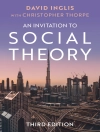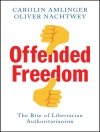We are spurred into action by our troubles and fears; but all too
often our action fails to address the true causes of our worries.
When trying to make sense of our lives, we tend to blame our own
failings and weaknesses for our discomforts and defeats. And in
doing so, we make things worse rather than better. Reasonable
beings that we are, how does this happen and why does it go on
happening?
These are the questions addressed in this new book by Zygmunt
Bauman – one of the most original and perceptive social thinkers
writing today. For Bauman, the task of sociology is not to censor
or correct the stories we tell of our lives, but to show that there
are more ways in which our life stories can be told. By bringing
into view the many complex dependencies invisible from the vantage
point of private experience, sociology can help us to link our
individual decisions and actions to the deeper causes of our
troubles and fears – to the ways we live, to the conditions under
which we act, to the socially drawn limits of our imagination and
ambition. Sociology can help us to understand the processes that
have shaped the society in which we live today, a society in which
individualization has become our fate. And sociology can also help
us to see that if our individual but shared anxieties are to be
effectively tackled, they need to be addressed collectively, true
to their social, not individual, nature.
The Individualized Society will be of great interest to
students of sociology, politics and the social sciences and
humanities generally. It will also appeal to a broader range of
readers who are interested in the changing nature of our social and
political life today.
Table des matières
Foreword: Lives Told And Stories Lived.
Part One: The Way We Are.
Chapter 1. The Rise And Fall Of Labour.
Chapter 2: Local Orders, Global Chaos.
Chapter 3: Freedom And Security: The Unfinished Story Of A
Tempestuous Union.
Chapter 4: Modernity And Clarity: The Story Of A Failed
Conquest.
Chapter 5: Am I My Brother’s Keeper?.
Chapter 6. United In Difference.
Part Two: The Way We Think.
Chapter 7: Critique – Privatized And Disarmed.
Chapter 8: Progress: The Same And Different.
Chapter 9: On Mass, Individuals, and Peg-Communities.
Chapter 10: Education: Under, For And In Spite Of
Postmodernity.
Chapter 11: Excess: An Obituary.
Chapter 12: Faith And Instant Gratification.
Part Three: The Way We Act.
Chapter 13: Does Love Need A Reason?.
Chapter 14: Private Morality, Immoral World.
Chapter 15: Democracy On Two Battlefronts.
Chapter 16: Violence, Old and New.
Chapter 17: On Postmodern Uses Of Sex.
Chapter 18: Is There Life After Immortality?
A propos de l’auteur
Zygmunt Bauman (1925-2017) was Emeritus Professor of Sociology at the University of Leeds.












